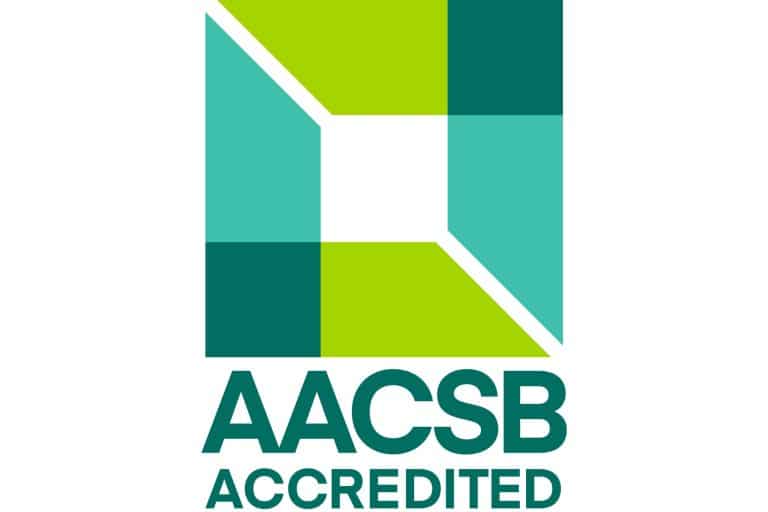Best MBA Programs in Finance
Tuition, ROI, Graduate Salary, GMAT Requirements
$51,354
Average Tuition – Finance MBA Programs
$83,879
Average Starting Salary – Finance MBA Programs
570
Average GMAT Scores – Finance MBA Programs
177%
Average ROI – Finance MBA Programs
After evaluating 427 finance MBA programs nationwide, we’ve identified the 50 programs that deliver exceptional value based on rigorous analysis of placement rates, curriculum strength, faculty expertise, and return on investment. Whether you’re targeting Wall Street, Silicon Valley fintech, or corporate treasury roles, this guide will help you identify programs aligned with your specific career goals and financial constraints.
Executive Summary: Key Findings
Our comprehensive analysis of finance MBA programs reveals several important trends for prospective students:
- Specialization Matters: Programs with focused tracks in areas like quantitative finance, fintech, or sustainable investing produce graduates with 18% higher starting salaries than general finance programs.
- Location Premium: Programs near financial hubs (NYC, Chicago, London) show 22% higher placement rates in top-tier financial institutions.
- Experiential Learning Gap: Only 37% of finance MBA programs offer student-managed investment funds exceeding $1M, yet these programs demonstrate significantly stronger placement outcomes.
- ROI Variations: While the average 5-year ROI is 243%, this ranges from 157% to 412% depending on program cost, location, and specialization focus.
- Emerging Specializations: Fintech, sustainable finance, and private capital specializations are growing rapidly, with 28% more programs offering these tracks compared to three years ago.
The ranking team at MBAGuide.org, evaluated 427 Finance MBA programs. Here is a summary of our comprehensive findings. Explore the details about the Finance MBA, compare schools, find states and cities where the degree is offered.
Our Top 10 Picks for Best Finance MBA Programs
Interactive Table: 50 Best Ranked MBA Programs in Finance
Easily sort the interactive table below to find the best Finance MBA programs by Rank, School Name, ROI, Tuition, Average Starting Salary, and Campus or Online to find and to compare MBA programs in Finance. Click on any school for a comprehensive school profile.
| Rank | University | ROI | In State Tuition | Avg. Starting Salary | State | Online |
|---|---|---|---|---|---|---|
| 1 | The University of Texas at Dallas | 243.00% | $45,000 | $123,163 | TX | Yes |
| 2 | Indiana University Bloomington/Indianapolis | 124.00% | $29,573 | $136,352 | IN | Yes |
| 3 | Harvard University | 17.00% | $149,820 | $175,000 | MA | No |
| 4 | University of Washington | 97.00% | $76,890 | $151,322 | WA | No |
| 5 | University of Wisconsin-Madison | 114.00% | $55,575 | $118,983 | WI | Yes |
| 6 | Northwestern University | 8.00% | $162,030 | $175,000 | IL | No |
| 7 | The University of North Carolina at Chapel Hill | 33.00% | $100,218 | $133,517 | NC | Yes |
| 8 | Brigham Young University | 104.00% | $58,544 | $119,281 | UT | No |
| 9 | Michigan State University | 246.00% | $34,564 | $119,539 | MI | Yes |
| 10 | The University of Georgia | 294.00% | $30,606 | $120,510 | GA | Yes |
| 11 | University of South Carolina | 269.00% | $26,485 | $97,819 | SC | No |
| 12 | University of Massachusetts Boston | 537.00% | $19,499 | $124,277 | MA | Yes |
| 13 | University of Virginia-McIntire | 4.00% | $151,200 | $157,090 | VA | No |
| 14 | Emory University | -1.00% | $151,689 | $149,759 | GA | No |
| 15 | The University of Texas at Austin | 20.00% | $120,432 | $144,564 | TX | No |
| 16 | Southern Methodist University | 27.00% | $96,788 | $122,609 | TX | Yes |
| 17 | University of Southern California | -3.00% | $154,339 | $150,314 | CA | Yes |
| 18 | Georgetown University | 11.00% | $124,814 | $138,552 | DC | Yes |
| 19 | The University of Iowa | 381.00% | $23,453 | $112,820 | IA | No |
| 20 | Stanford University | 10.00% | $165,591 | $182,272 | CA | No |
| 21 | University of California, Berkeley | 9.00% | $139,628 | $152,831 | CA | No |
| 22 | University of St. Thomas-Minnesota | 67.00% | $61,596 | $102,900 | MN | Yes |
| 23 | New York University | 1.00% | $160,130 | $161,475 | NY | No |
| 24 | University of Pennsylvania | -7.00% | $179,852 | $166,391 | PA | No |
| 25 | University of Maryland | 22.00% | $98,865 | $121,103 | MD | Yes |
| 26 | University of California, Los Angeles | 3.00% | $142,142 | $146,727 | CA | No |
| 27 | The University of Chicago | -1.00% | $167,393 | $165,887 | IL | No |
| 28 | University of Florida | 343.00% | $26,473 | $117,197 | FL | Yes |
| 29 | Carnegie Mellon University | - | $147,456 | $148,067 | PA | Yes |
| 30 | Yale University | -1.00% | $153,540 | $152,744 | CT | No |
| 31 | University of Minnesota | 36.00% | $89,402 | $121,882 | MN | Yes |
| 32 | The Pennsylvania State University | 87.00% | $61,236 | $114,483 | PA | Yes |
| 33 | University of Illinois at Chicago | 179.00% | $60,264 | $167,977 | IL | Yes |
| 34 | American University | 8.00% | $98,282 | $105,666 | DC | Yes |
| 35 | Massachusetts Institute of Technology | -3.00% | $164,000 | $159,391 | MA | No |
| 36 | The George Washington University | 3.00% | $113,090 | $115,951 | DC | No |
| 37 | Boston University | -3.00% | $124,248 | $120,884 | MA | Yes |
| 38 | Fordham University | 28.00% | $99,497 | $127,511 | NY | Yes |
| 39 | University of Hartford | 213.00% | $30,168 | $94,500 | CT | Yes |
| 40 | Vanderbilt University | 7.00% | $131,000 | $139,711 | TN | No |
| 41 | Texas A&M University | 86.00% | $62,000 | $115,585 | TX | No |
| 42 | University of Notre Dame | 8.00% | $123,500 | $133,018 | IN | No |
| 43 | Rice University | 2.00% | $139,081 | $142,212 | TX | Yes |
| 44 | New Jersey Institute of Technology | 49.00% | $66,576 | $99,501 | NJ | Yes |
| 45 | University of Tennessee at Knoxville | 161.00% | $38,875 | $101,400 | TN | Yes |
| 46 | Northeastern University | -2.00% | $102,582 | $100,063 | MA | Yes |
| 47 | Washington University in St. Louis | -12.00% | $134,020 | $117,687 | MO | Yes |
| 48 | Arizona State University | 106.00% | $60,393 | $124,664 | AZ | Yes |
| 49 | University of California, Davis | 14.00% | $95,438 | $109,075 | CA | Yes |
| 50 | University of Utah | 77.00% | $65,700 | $116,348 | UT | Yes |
| 51 | University of California, Irvine | 26.00% | $97,342 | $122,899 | CA | No |
| 52 | University of Rochester | 23.00% | $108,038 | $132,671 | NY | Yes |
| 53 | Baruch College-The City University of New York | 218.00% | $37,338 | $118,633 | NY | Yes |
| 54 | University of Massachusetts Amherst | 231.00% | $33,622 | $111,227 | MA | Yes |
| 55 | Santa Clara University | 45.00% | $83,860 | $122,000 | CA | Yes |
| 56 | Temple University | 60.00% | $60,000 | $95,989 | PA | Yes |
| 57 | University of Cincinnati | 263.00% | $23,996 | $87,013 | OH | Yes |
| 58 | Case Western Reserve University | 4.00% | $92,040 | $95,875 | OH | No |
| 59 | University of Delaware | 105.00% | $39,954 | $82,000 | DE | Yes |
| 60 | Rutgers-The State University of New Jersey-Newark/New Brunswick | 95.00% | $58,442 | $113,800 | NJ | Yes |
| 61 | Babson College | 21.00% | $89,550 | $108,703 | MA | Yes |
| 62 | Lehigh University | 39.00% | $68,900 | $95,699 | PA | No |
| 63 | Georgia State University | 156.00% | $36,522 | $93,600 | GA | Yes |
| 64 | The Ohio State University | 1.00% | $106,123 | $106,779 | OH | Yes |
| 65 | University of California, San Diego | -2.00% | $106,246 | $103,969 | CA | No |
| 66 | Brandeis University | -9.00% | $120,223 | $109,000 | MA | No |
| 67 | University of Colorado at Boulder | 67.00% | $55,997 | $93,401 | CO | Yes |
| 68 | The University of Arizona | 96.00% | $54,785 | $107,345 | AZ | Yes |
| 69 | Indiana State University | 332.00% | $19,000 | $82,000 | IN | Yes |
| 70 | The University of Memphis | 216.00% | $23,688 | $74,800 | TN | Yes |
| 71 | University of Pittsburgh | 51.00% | $68,348 | $102,965 | PA | No |
| 72 | Boston College | -1.00% | $118,336 | $116,815 | MA | No |
| 73 | Villanova University | 95.00% | $60,000 | $116,800 | PA | Yes |
| 74 | The Pennsylvania State University Great Valley | 200.00% | $42,316 | $127,000 | PA | Yes |
| 75 | Texas Christian University | -7.00% | $115,380 | $107,543 | TX | Yes |
| 76 | University of Illinois at Urbana-Champaign | 192.00% | $33,772 | $98,500 | IL | Yes |
| 77 | Stevens Institute of Technology | 4.00% | $81,880 | $85,398 | NJ | Yes |
| 78 | Hofstra University | 87.00% | $58,960 | $110,500 | NY | Yes |
| 79 | George Mason University | 192.00% | $37,737 | $110,100 | VA | Yes |
| 80 | University of Miami | 19.00% | $92,290 | $109,555 | FL | Yes |
| 81 | Middle Tennessee State University | 233.00% | $26,712 | $89,000 | TN | Yes |
| 82 | Xavier University | 158.00% | $34,200 | $88,100 | OH | Yes |
| 83 | Queens University of Charlotte | 110.00% | $41,940 | $88,100 | NC | Yes |
| 84 | University of Nevada, Las Vegas | 331.00% | $21,784 | $93,820 | NV | Yes |
| 85 | University of Houston | 83.00% | $47,000 | $85,878 | TX | Yes |
| 86 | Baylor University | -8.00% | $85,692 | $79,176 | TX | Yes |
| 87 | Johns Hopkins Carey Business School | -4.00% | $133,000 | $127,044 | MD | Yes |
| 88 | Purdue University | 110.00% | $44,816 | $94,000 | IN | Yes |
| 89 | University of Nebraska-Lincoln | 185.00% | $32,400 | $92,300 | NE | Yes |
| 90 | Oregon State University | 46.00% | $52,090 | $75,900 | OR | Yes |
| 91 | Miami University | -32.00% | $136,342 | $92,700 | OH | Yes |
| 92 | Purdue University Northwest | 605.00% | $12,350 | $87,100 | IN | No |
| 93 | The University of Michigan-Dearborn | 83.00% | $50,997 | $93,200 | MI | Yes |
| 94 | Loyola University Chicago | 21.00% | $73,375 | $89,000 | IL | No |
| 95 | The Citadel | 435.00% | $21,830 | $116,700 | SC | Yes |
| 96 | University of Oklahoma | 170.00% | $3,330,624 | $56,949 | OK | Yes |
| 97 | College of William and Mary | 167.00% | $42,000 | $112,000 | VA | Yes |
| 98 | University of San Diego | 46.00% | $69,610 | $101,333 | CA | Yes |
| 99 | University of San Francisco | 4.00% | $79,200 | $82,500 | CA | Yes |
| 100 | Clemson University | 83.00% | $43,088 | $78,767 | SC | Yes |
10 Qualities the Best Finance MBA Programs
What separates the best finance MBA programs from the merely good ones? Our analysis identified these 10 factors that consistently appear in top-performing programs.
- Industry-Leading Placement Rates – Great programs place 85%+ of graduates in target finance roles with top employers
- Specialized, Forward-Looking Curriculum – Offering both core finance mastery and emerging specializations like fintech, ESG investing, and private capital
- Compelling ROI – Demonstrating clear financial value through competitive tuition and strong salary outcomes
- Faculty With Dual Excellence – Blending academic research credentials with significant industry experience
- Powerful Finance Alumni Network – Providing access to mentorship and opportunities across financial sectors
- Strategic Location Advantage – Proximity to financial centers or specialized industry clusters
- Research-Driven Academic Rigor – Contributing to financial knowledge through centers of excellence and published research
- Finance-Focused Career Services – Offering specialized coaching, employer relationships, and interview preparation
- Hands-On Financial Experience – Providing student-managed funds, trading rooms, and industry projects
- Global Finance Perspective – Preparing students for international financial markets and cross-border opportunities
7 Traditional Finance Areas the Best MBA Programs Teach & Salaries
The foundation of any strong finance MBA includes mastery of these traditional finance domains:
- Corporate Finance – Capital structure optimization, dividend policy, working capital management, and financial planning that maximizes shareholder value while managing risk.
- Investment Analysis – Security valuation, portfolio construction, asset allocation, and risk management across equity, fixed income, and alternative investments.
- Financial Markets & Institutions – Structure and function of global financial markets, regulatory frameworks, and the role of intermediaries in capital formation and allocation.
- Mergers & Acquisitions – Deal sourcing, valuation methods, due diligence processes, integration planning, and post-merger performance evaluation.
- Risk Management – Identifying, measuring, and mitigating financial risks through derivatives, insurance, diversification, and enterprise risk management frameworks.
- International Finance – Cross-border capital flows, currency risk management, global investment strategies, and multinational financial management.
- Financial Reporting & Analysis – Advanced accounting principles, financial statement analysis, forecasting, and valuation based on reported financial data.
Salaries for Traditional Finance Roles
These established career paths offer structured advancement and competitive compensation:
| Role | Typical Starting Salary | 5-Year Salary Potential | Key Skills Required |
|---|---|---|---|
| Investment Banking Associate | $150,000-$175,000 | $300,000-$500,000 | Financial modeling, valuation, client management |
| Asset Management Analyst | $120,000-$140,000 | $200,000-$350,000 | Portfolio analysis, market research, risk assessment |
| Corporate Finance Manager | $110,000-$135,000 | $180,000-$250,000 | Capital budgeting, financial planning, stakeholder communication |
| Private Equity Associate | $150,000-$200,000 | $300,000-$600,000 | Deal sourcing, due diligence, operational improvement |
10 Next-Generation Finance Areas the Best MBA Programs Teach & Salaries
Forward-looking finance MBA programs have expanded their curricula to include these emerging domains:
- Financial Technology (Fintech) – Digital payments, blockchain applications, algorithmic trading, and technology-driven financial innovation.
- ESG & Sustainable Finance – Environmental, social, and governance investing, impact measurement, green bonds, and sustainable business models.
- Private Capital Markets – Private equity, venture capital, private debt, and direct lending strategies beyond traditional public markets.
- Quantitative Finance – Advanced mathematical modeling, computational finance, and statistical methods for financial analysis and decision-making.
- Behavioral Finance – Psychological factors influencing financial decisions, market anomalies, and cognitive biases in investment behavior.
- Financial Data Analytics – Big data applications in finance, machine learning for prediction, and data-driven decision frameworks.
- Digital Assets & Cryptocurrencies – Tokenomics, crypto markets, decentralized finance (DeFi), and regulatory considerations for digital assets.
- Alternative Investments – Real estate, infrastructure, commodities, hedge fund strategies, and other non-traditional asset classes.
- Financial Inclusion & Innovation – Business models and technologies expanding access to financial services in underserved markets.
- Entrepreneurial Finance – Startup valuation, seed funding, growth capital, and financial strategies for high-growth ventures.
Salaries for Next-Generation Finance Careers
These emerging paths offer innovation opportunities and often provide better work-life balance:
| Role | Typical Starting Salary | 5-Year Salary Potential | Key Skills Required |
|---|---|---|---|
| Fintech Product Manager | $130,000-$160,000 | $200,000-$300,000 | Product development, financial systems, user experience |
| ESG/Impact Investing Analyst | $110,000-$140,000 | $180,000-$250,000 | Sustainability metrics, impact assessment, stakeholder engagement |
| Blockchain/Crypto Finance Specialist | $140,000-$180,000 | $250,000-$400,000 | Distributed ledger technology, tokenomics, regulatory knowledge |
| AI Finance Strategist | $150,000-$190,000 | $250,000-$350,000 | Machine learning applications, algorithmic trading, data science |
Cross-Functional Leadership Skills the Best MBA Programs Cultivate
Beyond technical finance knowledge, top MBA programs develop these essential leadership capabilities:
- Strategic Decision-Making – Integrating financial analysis with broader business strategy to drive organizational success.
- Communication & Influence – Translating complex financial concepts for non-financial stakeholders and building support for recommendations.
- Team Leadership – Managing diverse finance teams, developing talent, and creating collaborative environments that drive performance.
- Ethical Judgment – Navigating complex ethical dilemmas in finance with integrity and understanding regulatory compliance requirements.
- Digital Fluency – Leveraging technology to enhance financial analysis, reporting, and decision-making processes.
- Change Management – Leading financial transformations and helping organizations adapt to evolving market conditions.
- Global Perspective – Understanding diverse financial systems, cultural differences, and cross-border business implications.
- Innovation Mindset – Identifying opportunities to improve financial processes, products, and services through creative approaches.
Compare Online Finance MBA Program Averages vs Campus
Compare Average Tuition, Starting Salary, ROI. GMAT, Faculty/Student Ratio Enrollment between Campus and Online Programs
| Averages | MBA Programs | Online MBA Programs |
|---|---|---|
| Number of Programs | 427 | 333 |
| Average Starting Salary | $83,879 | $80,646 |
| Average MBA Tuition | $51,354 | $48,709 |
| Average ROI | 177% | 189% |
| Average GMAT Scores | 570 | 564 |
| Average Full-Time MBA Faculty | 74 | 74 |
| Average MBA Student Faculty Ratio | 17:1 | 17:1 |
| Average Full-Time MBA Enrollment | 298 | 292 |
How We Rank the Best MBA Programs in Finance
MBAGuide.org employs a comprehensive ranking methodology that combines quantitative data (80% of the score) with qualitative assessments (20%) to evaluate MBA programs. The quantitative component considers factors such as student-faculty ratio, tuition, enrollment, and post-graduation salaries, while the qualitative aspect incorporates editorial ratings and school reputation, providing a well-rounded view of each program’s quality and value.
Best MBA Programs by Concentration: Online and In-Person
- Accounting – Online | In-Person
- Actuarial Science – Online | In-Person
- Arts – Online | In-Person
- Business Administration – Online | In-Person
- Communications – Online | In-Person
- Consulting – Online | In-Person
- Corporate Finance – Online | In-Person
- Cybersecurity – Online | In-Person
- Data Analytics – Online | In-Person
- E-Commerce – Online | In-Person
- Economics – Online | In-Person
- Education – Online | In-Person
- Energy – Online | In-Person
- Engineering – Online | In-Person
- Entrepreneurship – Online | In-Person
- Ethics – Online | In-Person
- Finance – Online | In-Person
- Financial Management – Online | In-Person
- Global Management – Online | In-Person
- Healthcare Administration – Online | In-Person
- Hospitality Management – Online | In-Person
- Human Resources – Online | In-Person
- Information Systems – Online | In-Person
- Innovation Management – Online | In-Person
- Insurance – Online | In-Person
- International Business – Online | In-Person
- Law – JD MBA – Online | In-Person
- Leadership – Online | In-Person
- Management – Online | In-Person
- Manufacturing – Online | In-Person
- Marketing – Online | In-Person
- Non-Profit Management – Online | In-Person
- Operations Management – Online | In-Person
- Organizational Behavior – Online | In-Person
- Product Management – Online | In-Person
- Project Management – Online | In-Person
- Public Administration – Online | In-Person
- Quantitative Methods – Online | In-Person
- Real Estate – Online | In-Person
- Sports Management – Online | In-Person
- Statistics – Online | In-Person
- Supply Chain Management – Online | In-Person
- Sustainability Management – Online | In-Person
- Taxation – Online | In-Person
- Technology Management – Online | In-Person
Business School Data Sources from
See all data sources including 756 College and University Programs
![50 Best Finance MBA Programs in [year] 1 US Department of Education MBA Data](https://staging.mbaguide.org/wp-content/uploads/2022/12/us-department-education-logo.png)
![50 Best Finance MBA Programs in [year] 2 US Bureau of Labor Statistics MBA Data](https://staging.mbaguide.org/wp-content/uploads/2022/12/US-Bureau-of-Labor-Statistics.png)
![50 Best Finance MBA Programs in [year] 3 AACSB](https://staging.mbaguide.org/wp-content/uploads/2023/04/AACSB-logo-accredited-vert-color-RGB-214x300.png)
![50 Best Finance MBA Programs in [year] 4 Department of Labor MBA Data](https://staging.mbaguide.org/wp-content/uploads/2022/12/us-department-of-labor-logo-1024x1024.png)




![[year] Best MBA Programs in Accounting 8 MBA in Accounting](https://staging.mbaguide.org/wp-content/uploads/2023/02/woman-using-laptop-sitting-at-the-table-stockpack-pexels-768x512.jpg)
![50 Best MBA Programs in Data Analytics for [year] 9 MBA in Data Analytics](https://staging.mbaguide.org/wp-content/uploads/2022/06/mba-in-data-analytics-768x512.jpg)
